- Home
- Marie Ferrarella
Cavanaugh or Death Page 9
Cavanaugh or Death Read online
Page 9
Telling Carver that it wasn’t that simple a matter wouldn’t carry any weight with the man. She phrased her appeal differently. “But if I could have just a little more time—” she began.
“I said no and I mean no. Now get back to the case I assigned you—unless you suddenly find yourself needing a leave of absence without pay,” he snarled.
He was getting to her, but Moira held on to her temper. She wasn’t about to give up easily. “But, Lieutenant, I have pictures—”
Gripping the armrests, Carver straightened in his chair, looking some two inches taller. “I don’t care if you have a whole freakin’ two-hour movie with a cast of thousands, the answer’s still no.”
She gave it one last try. “Don’t you think that it’s kind of odd that both the first grave and the second grave had coffins in them that were buried twenty years ago?” she asked doggedly. She refused to believe the man didn’t make the connection.
The expression on Carver’s face bordered on barely suppressed fury.
“I think a lot of things are odd, Cavanaugh—like bacon-flavored potato chips—but I’m not about to authorize a costly investigation into that, either. As for both those coffins you’re so fascinated with being buried twenty years ago...in case it escaped your notice, people did die twenty years ago. Something had to be done with those bodies. Burying them seemed like a logical solution,” he concluded sarcastically. His voice grew hard as he asked, “How are you coming along with the last B and E I gave you?”
Moira suppressed an impatient sigh. “I’m still working it.”
“Work harder. And stop hanging around cemeteries,” he all but snarled, waving her out of his office. “Close the door behind you,” he snapped just before he went back to ignoring her.
Closing the door, Moira counted to ten. She’d entered the fray aware that it might not go the way she’d hoped no matter what.
But that didn’t help to abate her frustration.
* * *
Moira gave the B and E her best shot.
Three hours after reviewing the information she’d gathered regarding the ancient TV heist and canvasing the neighborhood where the burglary had taken place, she still had no answers. She decided to extend her canvas to include local pawnshops.
That was when she discovered that Aurora had no pawnshops, local or otherwise. The two pawnshops closest to the burglary were both located in Rosewood, which was a couple of cities over from Aurora.
The first pawnshop she went to turned out to be a dead end since the Golden Pawn Shop dealt strictly with jewelry. However, the Pre-Owned Palace Pawn Shop turned out to be lucky for her. Looking into the store through the window, Moira could make out what appeared to be the stolen antiquated television set sitting on a counter in the back of the shop.
“One of a kind,” the pawnbroker behind the counter enthused when she walked in and inquired about it. The man patted the top of the set with the kind of affection a used-car salesman displayed for the merchandise he was attempting to push. “They just don’t make ’em like these anymore. As you can see, it’s a rare little gem.” He gave the set a long once-over before saying, “I can let you have it for...say, a hundred bucks.”
She doubted the broker had paid the burglar more than twenty-five dollars, if that much, for the stolen merchandise.
“Just when did you come into possession of this ‘one of a kind’ set?” she asked.
He pretended to think. “As a matter of fact, just recently. Can’t promise that it’ll still be here when you come back if you’re thinking of sleeping on it,” he told her, trying to seal the deal.
Moira glanced up at the camera mounted on the wall directly above the counter. “Does that camera work?” she asked, nodding toward it.
“Everything here works,” he told her with just a touch of indignation.
At that point, Moira quietly took out her badge and identification, showing both to the broker.
“Aw, why d’you want to go and spoil my day, Detective?” the pawnbroker lamented.
“Well, you just might have made mine,” she told him, putting her badge and ID away. “Do you have the name of the person who sold you this ‘rare gem’?”
Looking disgruntled, the pawnbroker pulled up his purchase log on the laptop next to his register. He skimmed it then located the purchase receipt. “Yeah. Andrew Jackson.”
“Original,” she murmured. But then, the world had more stupid criminals than most people knew, she thought, happy that she could finally stop spinning her wheels over this penny-ante theft and get back to the mystery that was eating away at her. “Now, if I could see the video feed you have from the date of the sale.”
The man frowned. “Sure.” With a resigned sigh, the broker led the way to his tiny back office. “Any way I can get to keep the television?” he asked her hopefully.
Moira took out a piece of paper from her wallet and held it up for him to see. “I’ve got the stolen item’s serial number. What do you think?”
The broker sighed deeply as he indicated a box of surveillance DVDs from the previous week. “I think I’d better start asking for some photo ID.”
Moira spared the man an approving smile. “Good decision.”
Once she located the section she was looking for, Moira forwarded the pertinent video clip to Valri with a text requesting that the man in the surveillance tape be run through the lab’s facial recognition software. If she got lucky, she might get the thief’s real name and, hopefully, his address. Once she had that, winding up the case would be easy and she could move on.
And she knew just where she wanted to move to.
* * *
Moira didn’t report back to Carver or her squad room when she got back to the precinct.
Instead she did something she normally didn’t approve of and actually felt decidedly uncomfortable about doing.
She went over the lieutenant’s head.
Moira registered her discomfort when she presented her case to the Chief of Detectives half an hour after Valri had replied to her text.
Brian Cavanaugh listened to his grandniece patiently, looking with interest when she showed him the photographs she’d taken of both gravesites.
When she was finished making her case, she put away her cell and repeated what she’d said when she’d first entered his office and asked to speak with him.
“Like I said, Chief, I don’t believe in going over my superior’s head, but—”
Brian smiled understandingly at her. “But you have this gut feeling that’s telling you something’s wrong,” he interjected.
Moira flushed. “I know it must sound silly to you—” she began, trying not to trip over her own tongue or sound incoherent.
“No, actually, it doesn’t,” Brian contradicted. “I’m a great believer in gut feelings, Detective. Most of the family is.” He felt he was telling her what she already knew—but there was still something she might not know, he reasoned. “You’re a latecomer to all this, so I don’t know if you’re familiar with the former police chief’s story—”
Moira knew that he was referring to his older brother, Andrew Cavanaugh. “I am,” she quickly responded.
“So you know that even when everything pointed to another scenario, he believed that his missing wife was actually still alive and he acted accordingly. Every chance he got, he reviewed all the evidence he could find and kept after it—with very good results eventually. If he hadn’t had that ‘gut feeling’ and respected it, Rose might have never gotten her memory back, might never have known who she really was, and her children would have gone on believing that their mother was dead. I think all the Cavanaughs became true believers when it came to gut feelings after that.”
The smile he gave her spoke volumes.
“So then I’m free to go back to the cemete
ry and investigate?” she nonetheless asked, watching the chief’s face.
He nodded, adding, “You’ll still need another court order.”
“Not a problem,” she assured him quickly.
Brian nodded. He hadn’t expected that to be a stumbling block for the young detective. She struck him as being very capable, not to mention resourceful.
“And for the duration of this case,” he went on, “whatever path it might take, I’d like you to continue working with Detective Gilroy.”
This time Moira offered him a less than enthusiastic smile. She’d given him all the facts, including how she’d teamed up with the other detective, but she had done it to give him a full picture of everything that had transpired until now. She hadn’t foreseen this turn of events.
“That might be a problem,” she told him.
Her response surprised him. “You’d rather not work with Detective Gilroy?” She hadn’t indicated during her narrative that there was any friction between them.
“Oh, I have no problem working with him,” she told the chief quickly, “but I think he has a problem working with me.”
Intrigued, Brian asked, “How so?”
For a moment she wasn’t sure just how much she could tell the chief without sounding as if she was telling tales out of school. She decided to tread lightly.
“Gilroy doesn’t want to work with any partner—something about losing two of them in three years,” she explained vaguely. At that point, she stopped, thinking that if the Chief of Ds needed anything further on the subject, he would talk to Gilroy directly. After all, working together—or not working together—was Gilroy’s problem, not hers.
Brian steepled his fingers thoughtfully. “I like accommodating my people whenever possible. However, I also believe in using the best people for the job and, in this case, since Detective Gilroy was in on it at the very beginning, same as you, I think teaming the two of you up again is in everyone’s best interest.”
Moira pressed her lips together for a moment as she shook her head. “I think Gilroy might have a different opinion about that.”
“Don’t worry about Gilroy,” the chief counseled. “I’ll speak to him—and to Lieutenant Carver,” he added in case she was concerned about what to say to her superior. “You just get back on the case and see if you can find out what’s so attractive about twenty-year-old gravesites that makes people want to dig them up—or whatever it is that is going on with those graves.”
Taking the meeting to be over, Moira rose to her feet. “Thank you, sir,” she said, impetuously shaking the man’s hand.
The chief shook her hand warmly before releasing it again. “Don’t thank me, Detective, just follow your gut—and get those answers,” he instructed with a smile.
Sitting again, Brian reached for his phone as she let herself out.
Walking out, Moira felt her cell phone vibrate in her pocket.
When she took it out and looked at the screen, she suppressed a triumphant shout. Valri had forwarded the driver’s license of one Robert Anthony Ullman.
The face on the license was a complete match for the face on the pawn shop surveillance tape.
“No MENSA Scholar of the Year award for you,” she murmured, looking at the man’s face.
Texting her thanks and a short I owe you to her sister, she felt a little better about what was transpiring.
She knew she wasn’t exactly going to be Carver’s favorite person from here on in—not that she’d been in the running for that particular honor in the first place—but at least she’d solved the case he’d given her and, more importantly, an eighty-year-old, retired singing waiter would be reunited with his television set, she thought with a satisfied smile.
* * *
“What the hell’s going on?”
The question—and the man—ambushed Moira as she left her squad room almost an hour later.
She’d already had a less than friendly meeting with Carver who—despite the fact that she had solved the B and E case in a rather short time span—was immensely displeased, to put it mildly, that she had gone over his head to the chief to request being put back on “this freakin’ nonexistent case you’re so obsessed to crack.”
Rather than attempt to explain her reasoning again, Moira had remained silent and let the lieutenant rant at her for a few minutes until he’d apparently completely run out of steam.
At that point he’d ordered her out of his office and, rather than give her the usual order regarding his door, had done the honors himself, slamming it in her wake.
She was acutely aware that Carver was glaring at her through his door and that all eyes in the squad were on her as she walked into the hall.
And that was exactly when Davis Gilroy confronted her.
“You’re going to have to be clearer than that,” Moira said, attempting to gather herself together after Carver’s tongue-lashing. The last thing she wanted to do was to come off vulnerable.
“Don’t play innocent with me,” Davis began, exasperated.
“I’m not playing,” she retorted, struggling not to lose her temper. She reminded herself it wasn’t Gilroy she was angry with, it was Carver. “Now, exactly what are you asking me?”
About to tell her, Davis abruptly stopped and looked at her more closely. He saw what she was trying so hard to cover up: frustration and weariness. He found himself feeling sorry for her, which in turn annoyed him, but it didn’t change his reaction. Damn it, what was it about this woman that kept getting to him?
“You okay?” he asked gruffly.
“Other than having the lieutenant and now you yell into my face, I’m just peachy,” she quipped sharply, doing her best to hide hurt feelings.
Davis saw through the flippant rhetoric. “Why is he yelling at you?”
“Most likely for the same reason you are, but I won’t know that for sure until you tell me exactly what you’re asking.”
He had a feeling she knew exactly what he was asking, but he went through the motions of an explanation anyway. “The Chief of Ds called my captain, who then called me into his office to tell me that I was ‘back’ on the cemetery case. I thought we’d already decided that there is no cemetery case,” he said to her. “You change your mind?”
Moira shrugged, avoiding his probing eyes. “I had it changed for me.”
“By whom?” he asked.
“More like a what.”
The other detective paused for a long moment before finally asking, “Okay, I’ll bite.” He was being more accommodating than she’d thought he’d be. “What?”
At least she could give him the facts. “I found another grave that was disturbed.”
The expression on his face was nothing short of amazed—and suspicious. “When?”
“Earlier today.”
That didn’t sound right to him. “You still staking out the cemetery?”
“Not exactly,” she answered then left it there. She hadn’t left the flowers on his parents’ grave to get any sort of credit—or even to admit it to him.
The truth of the matter was that she hadn’t really thought it out, other than wanting to find a way to make amends for treading on the detective’s private wound.
“I was at the cemetery earlier,” she finally said, “looking around, to see if I could find something that might open up the case again. I really feel that there’s something going on there,” she added quickly. That was the key to the whole thing; her gut feeling that just wouldn’t allow her to leave the matter alone.
“I see,” he replied thoughtfully. “And did you find that disturbed grave before or after you left the roses on my parents’ grave?” he asked.
Moira’s mouth dropped open.
Chapter 10
“Flower basket?” Moira asked, tryi
ng to sound as if she had no idea what he was talking about when she finally found her voice.
Davis laughed drily, though there was little humor in his voice.
“Well, now I know you can’t act. Do me a favor, Cavanaugh. If we wind up having to fabricate something in order to get information out of a possible suspect—if we manage to get that far in this case—you let me do the talking.”
Moira deliberately ignored the obvious insult and went straight to the heart of what he was subtly telling her.
“Then you are on board for the investigation?” She didn’t bother to try to hide the hopeful note in her voice.
The look he gave her was far from a happy one. He still had a problem with being partnered with anyone. But when the chief of detectives issued an order—no matter how politely—there was only one path open for him to take.
“I’d say more like I was being shoved on board—but I’m in, if that’s what you’re asking. And before you say anything that remotely sounds like ‘thanks,’ I’d like to draw your attention to the fact that I have no choice in the matter.”
Moira nodded. This man apparently wouldn’t admit to doing a good thing even if not admitting it meant being drawn and quartered.
“Thanks nonetheless,” she replied. Then, because she knew he didn’t want to waste any time, she told him the plan—at least the one she’d come up with for now. “I thought we’d see if we can track down a next of kin for this newest dearly departed who’s had her grave disturbed.”
Davis went to the logical immediate next step. “That means we have to talk to Weaver again, doesn’t it?”
By her expression, he judged that she didn’t like it any better than he did. “Unless we get lucky and there’s someone else in the chapel office.”
“How lucky do you feel?” he asked her.
Moira paused to look at him for a long moment. She had expected Gilroy to be dragged back into the investigation kicking and screaming. That he’d agreed so readily—even if he’d had no choice in the matter—surprised her. It also reinforced her feelings that she wasn’t the only one who thought there was more going on at the cemetery than met the eye.

 Colton Baby Conspiracy (The Coltons 0f Mustang Valley Book 1)
Colton Baby Conspiracy (The Coltons 0f Mustang Valley Book 1)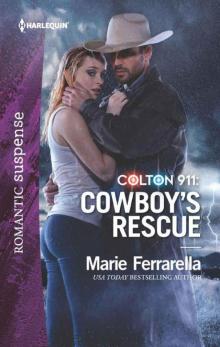 Cowboy's Rescue (Colton 911 Book 1)
Cowboy's Rescue (Colton 911 Book 1) Bridesmaid For Hire (Matchmaking Mamas Book 23)
Bridesmaid For Hire (Matchmaking Mamas Book 23) Secrets of Forever
Secrets of Forever Fortune's Greatest Risk (The Fortunes 0f Texas: Rambling Rose Book 4)
Fortune's Greatest Risk (The Fortunes 0f Texas: Rambling Rose Book 4)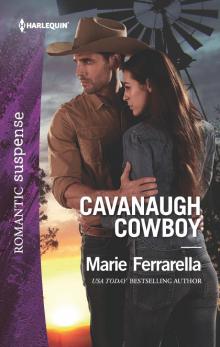 Cavanaugh Cowboy
Cavanaugh Cowboy Colton 911: Secret Defender
Colton 911: Secret Defender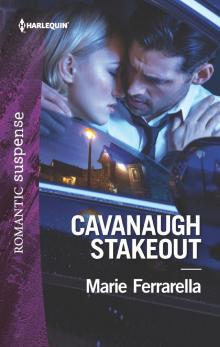 Cavanaugh Stakeout
Cavanaugh Stakeout The Late Bloomer's Road to Love
The Late Bloomer's Road to Love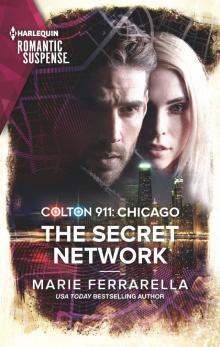 Colton 911--The Secret Network
Colton 911--The Secret Network An Unexpected Father
An Unexpected Father The Lawman's Romance Lesson (Forever, Tx. Series Book 20)
The Lawman's Romance Lesson (Forever, Tx. Series Book 20) Coming to a Crossroads
Coming to a Crossroads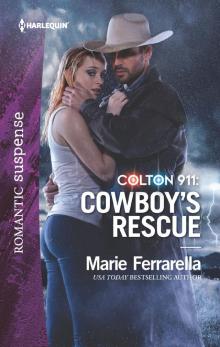 Colton 911: Cowboy's Rescue
Colton 911: Cowboy's Rescue Summer of Love
Summer of Love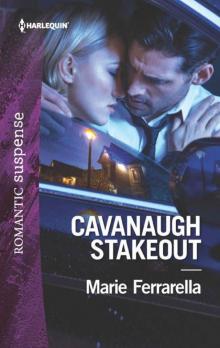 Cavanaugh Stakeout (Cavanaugh Justice Book 41)
Cavanaugh Stakeout (Cavanaugh Justice Book 41) Texan Seeks Fortune
Texan Seeks Fortune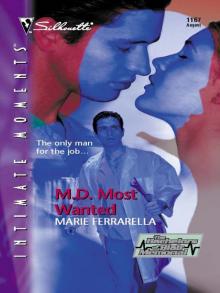 M.D. Most Wanted
M.D. Most Wanted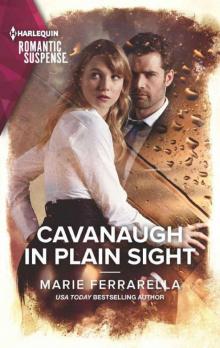 Cavanaugh In Plain Sight (Cavanaugh Justice Book 42)
Cavanaugh In Plain Sight (Cavanaugh Justice Book 42)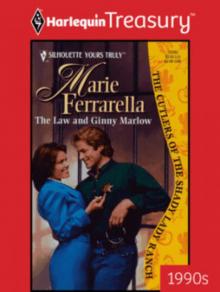 The Law and Ginny Marlow
The Law and Ginny Marlow Bridesmaid for Hire
Bridesmaid for Hire A Match for the Doctor
A Match for the Doctor The Sheriff’s Christmas Surprise
The Sheriff’s Christmas Surprise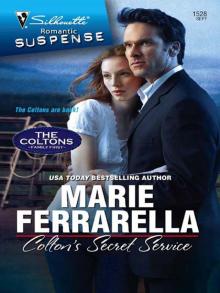 Colton's Secret Service
Colton's Secret Service A WEDDING FOR CHRISTMAS
A WEDDING FOR CHRISTMAS A Cavanaugh Christmas
A Cavanaugh Christmas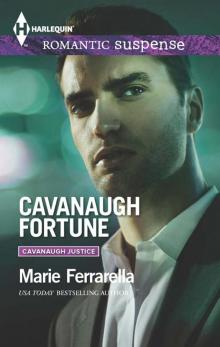 Cavanaugh Fortune
Cavanaugh Fortune The 39-Year-Old Virgin
The 39-Year-Old Virgin Coming To A Crossroads (Matchmaking Mamas Book 24)
Coming To A Crossroads (Matchmaking Mamas Book 24)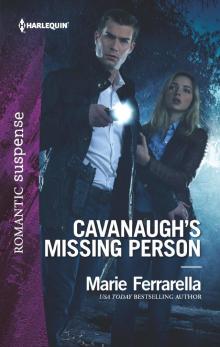 Cavanaugh's Missing Person
Cavanaugh's Missing Person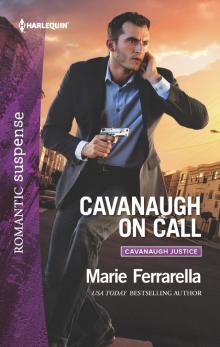 Cavanaugh on Call
Cavanaugh on Call The M.D.'s Surprise Family
The M.D.'s Surprise Family Angus's Lost Lady
Angus's Lost Lady Her Red-Carpet Romance
Her Red-Carpet Romance Choices (A Woman's Life)
Choices (A Woman's Life) Prescription for Romance
Prescription for Romance A Perfectly Imperfect Match (Matchmaking Mamas)
A Perfectly Imperfect Match (Matchmaking Mamas)![[Kate's Boys 04] - Travis's Appeal Read online](http://i1.bookreadfree.com/i/03/21/kates_boys_04_-_traviss_appeal_preview.jpg) [Kate's Boys 04] - Travis's Appeal
[Kate's Boys 04] - Travis's Appeal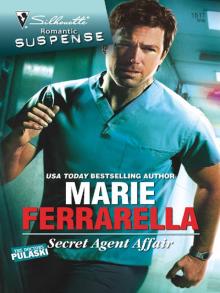 Secret Agent Affair
Secret Agent Affair The Cowboy's Lesson in Love
The Cowboy's Lesson in Love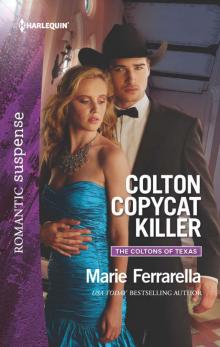 Colton Copycat Killer
Colton Copycat Killer A Small Fortune
A Small Fortune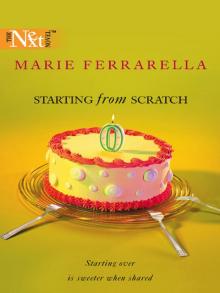 Starting from Scratch
Starting from Scratch Her Forever Cowboy
Her Forever Cowboy Colton Showdown
Colton Showdown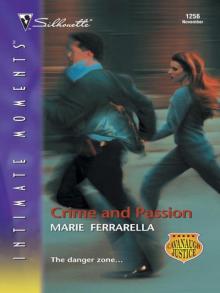 Crime and Passion
Crime and Passion The Heart of a Ruler
The Heart of a Ruler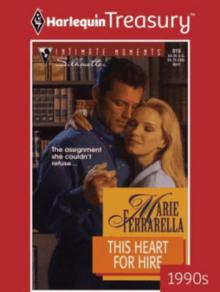 This Heart for Hire
This Heart for Hire A Forever Kind of Hero
A Forever Kind of Hero Special Agent's Perfect Cover
Special Agent's Perfect Cover The Baby Beneath the Mistletoe
The Baby Beneath the Mistletoe A Maverick and a Half
A Maverick and a Half The Doctor's Guardian
The Doctor's Guardian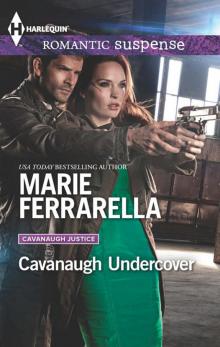 Cavanaugh Undercover
Cavanaugh Undercover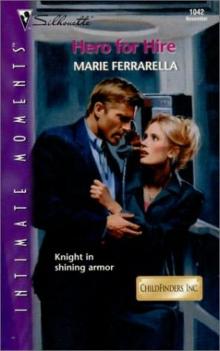 Hero for Hire
Hero for Hire Fortune's Heirs: Reunion
Fortune's Heirs: Reunion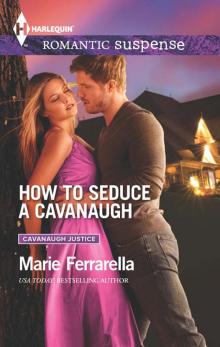 How to Seduce a Cavanaugh
How to Seduce a Cavanaugh The Heiress’s 2-Week Affair
The Heiress’s 2-Week Affair Twice a Hero, Always Her Man
Twice a Hero, Always Her Man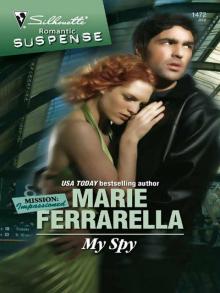 My Spy
My Spy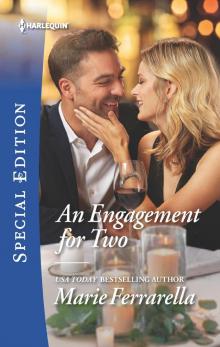 An Engagement for Two
An Engagement for Two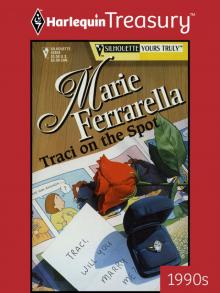 Traci On The Spot
Traci On The Spot Carrying His Secret
Carrying His Secret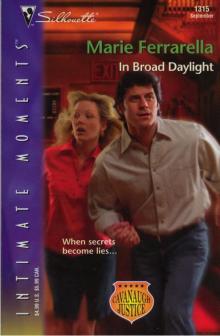 In Broad Daylight
In Broad Daylight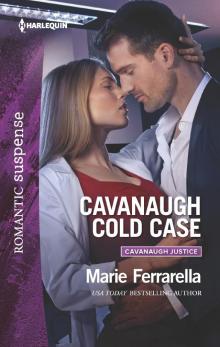 Cavanaugh Cold Case
Cavanaugh Cold Case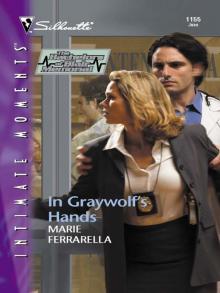 In Graywolf’s Hands
In Graywolf’s Hands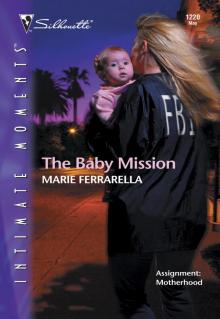 The Baby Mission
The Baby Mission Real Vintage Maverick
Real Vintage Maverick Twins on the Doorstep
Twins on the Doorstep Cowboys Are For Loving
Cowboys Are For Loving Heart of a Hero
Heart of a Hero The Cowboy's Christmas Surprise
The Cowboy's Christmas Surprise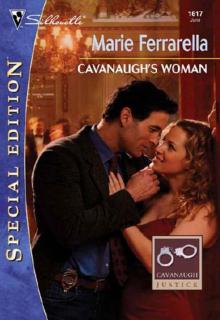 Cavanaugh’s Woman
Cavanaugh’s Woman Sundays Are for Murder
Sundays Are for Murder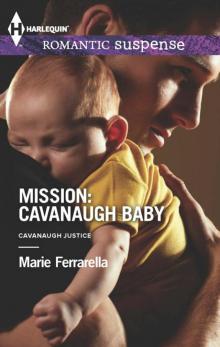 Mission: Cavanaugh Baby
Mission: Cavanaugh Baby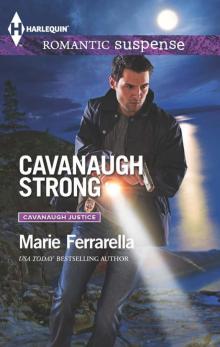 Cavanaugh Strong
Cavanaugh Strong Wish Upon a Matchmaker
Wish Upon a Matchmaker Dangerous Games
Dangerous Games What the Single Dad Wants...
What the Single Dad Wants... Rough Around the Edges
Rough Around the Edges Cavanaugh Judgment
Cavanaugh Judgment Cavanaugh Watch
Cavanaugh Watch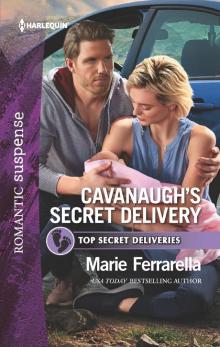 Cavanaugh's Secret Delivery
Cavanaugh's Secret Delivery The Pregnant Colton Bride
The Pregnant Colton Bride Let's Get Mommy Married
Let's Get Mommy Married Searching for Cate
Searching for Cate A Forever Christmas
A Forever Christmas Dangerous Disguise
Dangerous Disguise Mac’s Bedside Manner
Mac’s Bedside Manner Cavanaugh Pride
Cavanaugh Pride The Fortune Most Likely To...
The Fortune Most Likely To...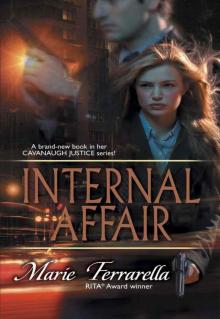 Internal Affair
Internal Affair A Second Chance for the Single Dad
A Second Chance for the Single Dad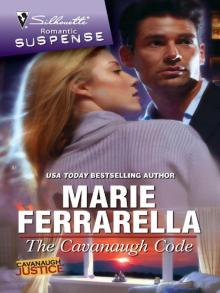 The Cavanaugh Code
The Cavanaugh Code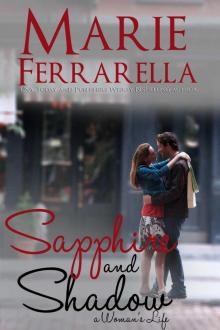 Sapphire and Shadow (A Woman's Life)
Sapphire and Shadow (A Woman's Life)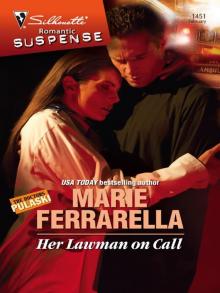 Her Lawman on Call
Her Lawman on Call A Dad At Last
A Dad At Last Her Right-Hand Cowboy (Forever, Tx Series Book 21)
Her Right-Hand Cowboy (Forever, Tx Series Book 21) Cavanaugh Heat
Cavanaugh Heat![[Ladera by the Sea 01] - A Wedding for Christmas Read online](http://i1.bookreadfree.com/i1/03/27/ladera_by_the_sea_01_-_a_wedding_for_christmas_preview.jpg) [Ladera by the Sea 01] - A Wedding for Christmas
[Ladera by the Sea 01] - A Wedding for Christmas Lassoing the Deputy
Lassoing the Deputy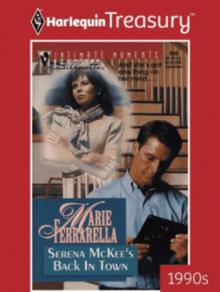 Serena Mckee's Back In Town
Serena Mckee's Back In Town A Baby on the Ranch: A Baby on the RanchRamona and the Renegade
A Baby on the Ranch: A Baby on the RanchRamona and the Renegade One Plus One Makes Marriage
One Plus One Makes Marriage Protecting His Witness
Protecting His Witness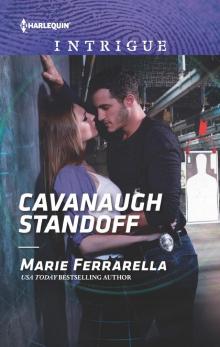 Cavanaugh Standoff
Cavanaugh Standoff The Baby Came C.O.D.
The Baby Came C.O.D. The Setup
The Setup Texas Rose
Texas Rose Three Marie Ferrarella Romances Box Set One
Three Marie Ferrarella Romances Box Set One The Lawman's Romance Lesson
The Lawman's Romance Lesson Desperately Seeking Twin...
Desperately Seeking Twin...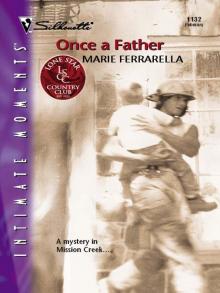 Once a Father
Once a Father![[The Sons of Lily Moreau 02] - Taming the Playboy Read online](http://i1.bookreadfree.com/i/03/25/the_sons_of_lily_moreau_02_-_taming_the_playboy_preview.jpg) [The Sons of Lily Moreau 02] - Taming the Playboy
[The Sons of Lily Moreau 02] - Taming the Playboy Lily and the Lawman
Lily and the Lawman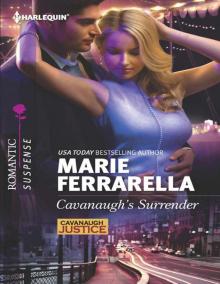 Cavanaugh's Surrender
Cavanaugh's Surrender The Cowboy and the Lady
The Cowboy and the Lady Innkeeper's Daughter
Innkeeper's Daughter A Bachelor and a Baby
A Bachelor and a Baby![[The Sons of Lily Moreau 03] - Capturing the Millionaire Read online](http://i1.bookreadfree.com/i1/03/31/the_sons_of_lily_moreau_03_-_capturing_the_millionaire_preview.jpg) [The Sons of Lily Moreau 03] - Capturing the Millionaire
[The Sons of Lily Moreau 03] - Capturing the Millionaire Because a Husband Is Forever
Because a Husband Is Forever Diamond in the Rough
Diamond in the Rough The Doctor's Forever Family
The Doctor's Forever Family A Lawman for Christmas
A Lawman for Christmas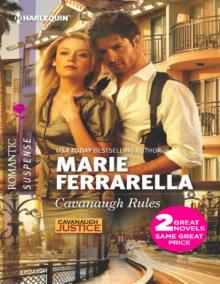 Cavanaugh Rules: Cavanaugh RulesCavanaugh Reunion
Cavanaugh Rules: Cavanaugh RulesCavanaugh Reunion Baby Times Two
Baby Times Two![[The Sons of Lily Moreau 01] - Remodeling the Bachelor Read online](http://i1.bookreadfree.com/i1/04/02/the_sons_of_lily_moreau_01_-_remodeling_the_bachelor_preview.jpg) [The Sons of Lily Moreau 01] - Remodeling the Bachelor
[The Sons of Lily Moreau 01] - Remodeling the Bachelor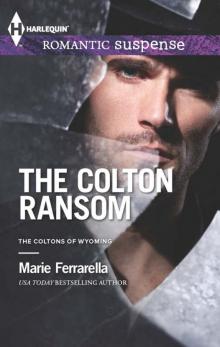 The Colton Ransom
The Colton Ransom Mendoza's Secret Fortune
Mendoza's Secret Fortune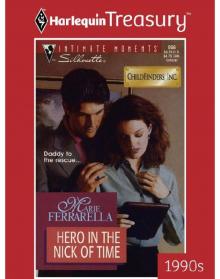 Hero in the Nick of Time
Hero in the Nick of Time![[Kate's Boys 03] - Mistletoe and Miracles Read online](http://i1.bookreadfree.com/i1/04/02/kates_boys_03_-_mistletoe_and_miracles_preview.jpg) [Kate's Boys 03] - Mistletoe and Miracles
[Kate's Boys 03] - Mistletoe and Miracles The Man Who Would Be Daddy
The Man Who Would Be Daddy Fortune's Second-Chance Cowboy
Fortune's Second-Chance Cowboy Coming Home for Christmas
Coming Home for Christmas Her Special Charm
Her Special Charm The Baby Wore a Badge
The Baby Wore a Badge Perfect Wyoming Complete Collection: Special Agent's Perfect Cover ; Rancher's Perfect Baby Rescue ; A Daughter's Perfect Secret ; Lawman's Perfect Surrender ; The Perfect Outsider ; Mercenary's Perfect Mission
Perfect Wyoming Complete Collection: Special Agent's Perfect Cover ; Rancher's Perfect Baby Rescue ; A Daughter's Perfect Secret ; Lawman's Perfect Surrender ; The Perfect Outsider ; Mercenary's Perfect Mission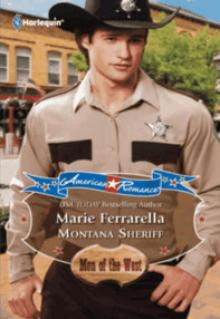 Montana Sheriff
Montana Sheriff Fiona And The Sexy Stranger
Fiona And The Sexy Stranger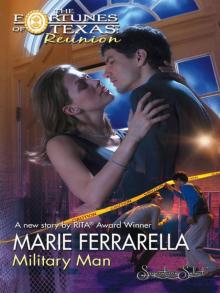 Military Man
Military Man Dating for Two (Matchmaking Mamas)
Dating for Two (Matchmaking Mamas) Cavanaugh Encounter
Cavanaugh Encounter In His Protective Custody
In His Protective Custody A Small Town Thanksgiving
A Small Town Thanksgiving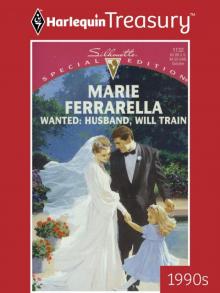 Wanted: Husband, Will Train
Wanted: Husband, Will Train Suddenly...Marriage!
Suddenly...Marriage! Plain Jane and the Playboy
Plain Jane and the Playboy Private Justice
Private Justice The Strong Silent Type
The Strong Silent Type Christmas Cowboy Duet
Christmas Cowboy Duet Flash and Fire
Flash and Fire Colton by Marriage
Colton by Marriage Fortune's Valentine Bride
Fortune's Valentine Bride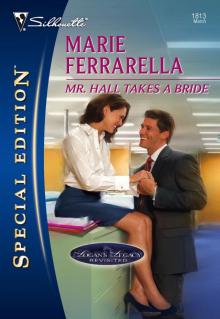 Mr. Hall Takes a Bride
Mr. Hall Takes a Bride Her Good Fortune
Her Good Fortune The Disenchanted Duke
The Disenchanted Duke Beauty and the Baby
Beauty and the Baby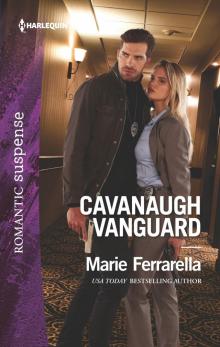 Cavanaugh Vanguard
Cavanaugh Vanguard In Bed with the Badge
In Bed with the Badge My Phony Valentine
My Phony Valentine The Rancher and the Baby
The Rancher and the Baby Immovable Objects
Immovable Objects Cavanaugh Reunion
Cavanaugh Reunion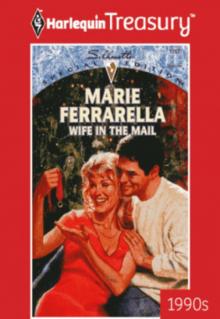 Wife in the Mail
Wife in the Mail A Hero in Her Eyes
A Hero in Her Eyes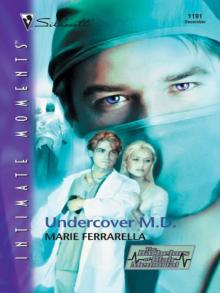 Undercover M.D.
Undercover M.D.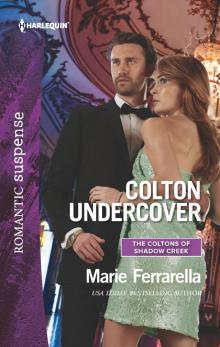 Colton Undercover
Colton Undercover Found: His Perfect Wife
Found: His Perfect Wife Dr. Forget-Me-Not (Matchmaking Mamas)
Dr. Forget-Me-Not (Matchmaking Mamas) Loving the Right Brother
Loving the Right Brother Holiday in a Stetson: The Sheriff Who Found ChristmasA Rancho Diablo Christmas
Holiday in a Stetson: The Sheriff Who Found ChristmasA Rancho Diablo Christmas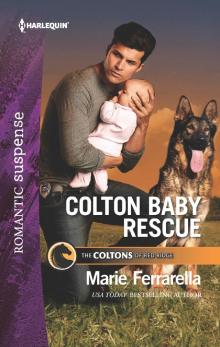 Colton Baby Rescue
Colton Baby Rescue Baby's First Christmas
Baby's First Christmas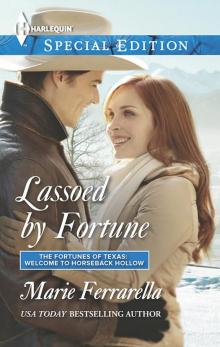 LASSOED BY FORTUNE
LASSOED BY FORTUNE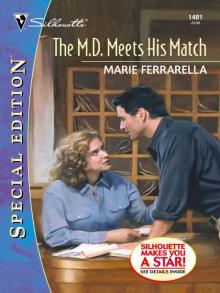 The M.D. Meets His Match
The M.D. Meets His Match A Baby for Christmas
A Baby for Christmas His Forever Valentine
His Forever Valentine The Inheritance
The Inheritance The Woman Who Wasn't There
The Woman Who Wasn't There![[Kate's Boys 05] - A Lawman for Christmas Read online](http://i1.bookreadfree.com/i2/04/09/kates_boys_05_-_a_lawman_for_christmas_preview.jpg) [Kate's Boys 05] - A Lawman for Christmas
[Kate's Boys 05] - A Lawman for Christmas Husbands and Other Strangers
Husbands and Other Strangers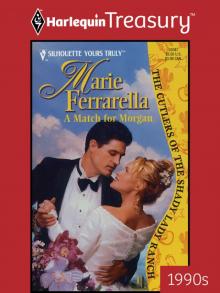 A Match for Morgan
A Match for Morgan The Doctor's Guardian & Tempted By His Target
The Doctor's Guardian & Tempted By His Target The Offer She Couldn't Refuse
The Offer She Couldn't Refuse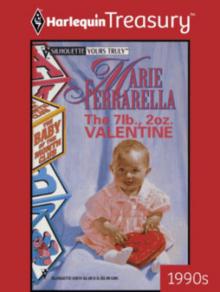 The 7 Lb., 2 Oz. Valentine
The 7 Lb., 2 Oz. Valentine Fixed Up with Mr. Right?
Fixed Up with Mr. Right?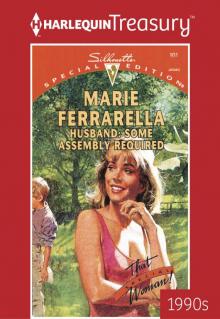 Husband: Some Assembly Required
Husband: Some Assembly Required Adding Up to Family
Adding Up to Family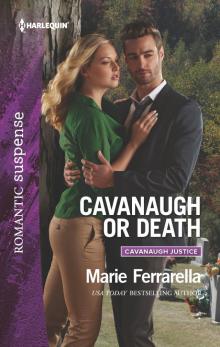 Cavanaugh or Death
Cavanaugh or Death Unwrapping the Playboy
Unwrapping the Playboy Becoming a Cavanaugh
Becoming a Cavanaugh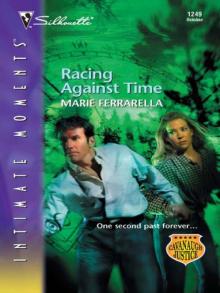 Racing Against Time
Racing Against Time Christmastime Courtship
Christmastime Courtship A Billionaire and a Baby
A Billionaire and a Baby Ten Years Later...
Ten Years Later...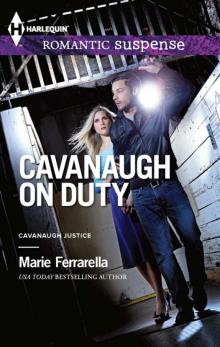 Cavanaugh on Duty
Cavanaugh on Duty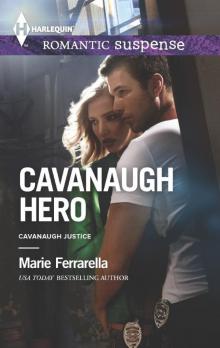 Cavanaugh Hero
Cavanaugh Hero Finding Happily-Ever-After
Finding Happily-Ever-After The Prodigal M.D. Returns
The Prodigal M.D. Returns Mendoza's Secret Fortune (The Fortunes of Texas: Cowboy Country)
Mendoza's Secret Fortune (The Fortunes of Texas: Cowboy Country) Once Upon a Matchmaker
Once Upon a Matchmaker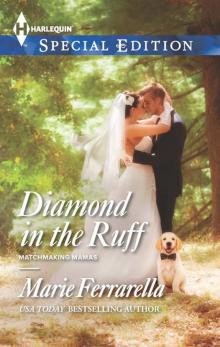 Diamond in the Ruff (Matchmaking Mamas Book 13)
Diamond in the Ruff (Matchmaking Mamas Book 13) Fortune's Just Desserts
Fortune's Just Desserts![[Kate's Boys 02] - The Bride With No Name Read online](http://i1.bookreadfree.com/i2/04/10/kates_boys_02_-_the_bride_with_no_name_preview.jpg) [Kate's Boys 02] - The Bride With No Name
[Kate's Boys 02] - The Bride With No Name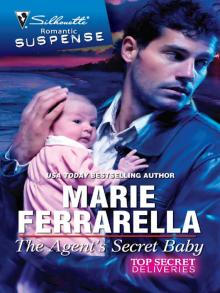 The Agent's Secret Baby
The Agent's Secret Baby Doctoring the Single Dad
Doctoring the Single Dad Stand-In Mom
Stand-In Mom Diamonds and Deceptions
Diamonds and Deceptions The Bride Wore Blue Jeans
The Bride Wore Blue Jeans The Amnesiac Bride
The Amnesiac Bride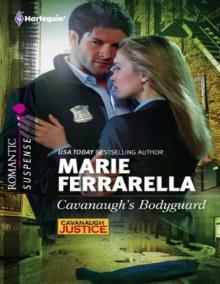 Cavanaugh's Bodyguard
Cavanaugh's Bodyguard Brooding Angel
Brooding Angel The Once and Future Father
The Once and Future Father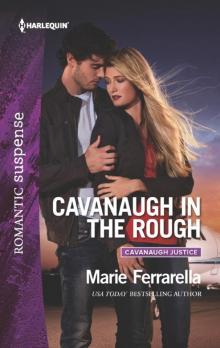 Cavanaugh in the Rough
Cavanaugh in the Rough Mother in Training
Mother in Training She’s Having a Baby
She’s Having a Baby Never Too Late For Love
Never Too Late For Love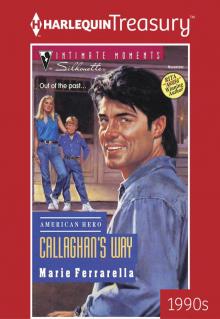 Callaghan's Way
Callaghan's Way Happy New Year--Baby!
Happy New Year--Baby!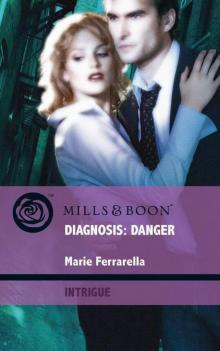 Diagnosis: Danger
Diagnosis: Danger Your Baby Or Mine?
Your Baby Or Mine? The Maverick's Return
The Maverick's Return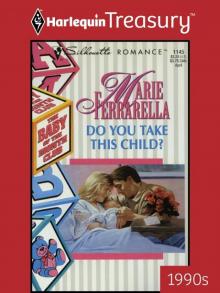 Do You Take This Child?
Do You Take This Child? The Women in Joe Sullivan's Life
The Women in Joe Sullivan's Life The Second Time Around
The Second Time Around A Hero for All Seasons
A Hero for All Seasons